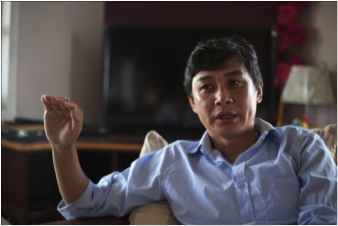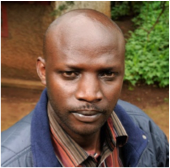| Country/region | India (federal state of Manipur in the northeast region) |
| Conflict | Human rights violations by the Army; armed rebel groups |
| Organisation | Human Rights Alert |
| Field of work | Human rights; civil rights |
Babloo is a lawyer, anthropologist and human rights activist. He has been fighting to protect human rights in the northeast of India for more than 20 years. In this area, a Special Powers Act gives the Army powers that are almost impossible to control, including the right to “shoot to kill” if they merely suspect terrorist activity. With his organisation, Babloo Loitongbam has meticulously documented no fewer than 1528 cases in which innocent people were killed in so-called “fake encounters” (alleged combat against terrorists). The motives of the soldiers: robbery with murder, or the prospect of promotion and a medal for bravery, as one has allegedly killed a terrorist.
Babloo bases his methods on Gandhi’s form of non-violent resistance, employs all legal means offered by the Indian State and uses the international stage. His non-violent resistance is creative. He works to defeat hardness (the violence) with softness. The exceptional victim Irom Sharmilas is in the centre of the HRA campaigns. She has been on hunger strike against the Army law for 15 years; she is in police custody and force-fed.
Babloo has been caring for Sharmila since the start of her hunger strike. He has coordinated by agreement with her the political and legal campaigns, including appeals to national and international human rights commissioners, as well as fasts in solidarity in public places and intensive media work. He also supports and coordinates the association of widows whose husbands have died through extra-judicial killings. The Indian State refuses compensation, even when it is proved that the victims were innocent.
He was a Fulbright Scholar and is an Ashoka Life Fellow.
LINKS:
Reportage from Peace Counts
http://www.peace-counts.org/toten-fur-medaillen/
Lecture on the Army Special Powers Act
https://www.youtube.com/watch?v=T0SIAdnr4NI
Facebook:
https://www.facebook.com/HUMAN-RIGHTS-ALERT-122566984429340/timeline/
Ashoka:
https://www.ashoka.org/fellow/babloo-loitongbam
+++
Land/Region: Indien
Konflikt:
Organisation: Human Rights Alert
Arbeitsfeld: Menschenrechte
URL



